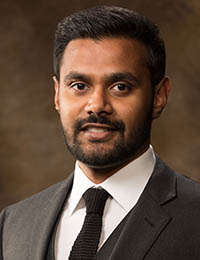
On January 27th, the Sam M. Walton College of Business’s Center for Business & Economics Research hosted the 29th Annual Business Forecast Luncheon. Julia Coronado, founder of MacroPolicy Perspectives and clinical associate professor at the McCombs School of Business, provided the international forecast. John List, chief economist at Walmart and the Kenneth C. Griffin distinguished service professor in economics at the University of Chicago, provided the domestic forecast. Mervin Jebaraj, the director of the Center for Business & Economic Research, provided the state and regional forecast. The event was moderated by Todd Simmons, CEO and vice-chair of Simmons Foods.
As the year continues to unfold, we reflect on what 2023 has in store for the economy. In a conversation with Mervin Jebaraj, Walton Insights revisited some of the points made during the luncheon. Here are our three major takeaways for young professionals:
1. If you’re graduating in May, you probably won’t be graduating into a recession. And that’s really good news
While economic forecasters have moderately qualified their optimism since the luncheon, given complete inflation data in January, Jebaraj still thinks we will sidestep a recession in the first part of the year. This means that students graduating in May will have likely secured a job prior to the second part of the year when the economic outlook is less certain.
According to research, students who graduate during a recession earn less during their careers than those who do not. One of the reasons this happens is that it usually takes people longer to find jobs during a recession, and the jobs they eventually land don’t pay as much as the jobs available when the economy is booming. This leads to an initial loss in income that can set the tone for your earnings throughout your career.
If you are graduating in May, it’s probably in your best interest to start your job search and secure a job as soon as you can. And congratulations if you already have!
2. Addressing “marginal” factors related to accessibility could help boost the economy and maintain the workforce.
During the luncheon, Jebaraj addressed the lack of housing in NWA required to foster economic growth in the area, and he also mentioned the aging workforce in some parts of the country — a topic that came up during other conversations as well. Nationally and internationally, people are having fewer kids, which means fewer people joining the workforce, but there are some things employers can do to create more welcoming environments for families. Hopefully this means younger professionals can look forward to businesses, policymakers, and local stakeholders collaborating to address factors like housing availability and childcare.
To increase participation in the workforce, employees must be able to move to areas with greater economic opportunity, such as NWA, and it must make more financial sense for both parents to participate in the workforce instead of one. In the case of NWA, higher incomes combined with limited housing and childcare means that the prices of both increase. While this doesn’t completely account for the decline in birth rates, access to affordable housing and childcare gives both parents the power to participate in the workforce.
As we become increasingly aware of how much marginal factors affect the economy, hopefully young professionals will have the opportunity to reap the benefits of more accessible workplaces.
3. The economy is resilient, and people are, too.
In the international forecast, Julia Coronado adopted a theme of resilience to describe her predictions for 2023. Despite economists having slightly more cautious outlooks since the luncheon, Jebaraj is still surprised by the resilience of the economy. He said we are in an unprecedented time and that we will have to “put an asterisk on every economics textbook out there.” Levels of inflation this high combined with Federal Reserve rates rising this quickly have historically accompanied a recession, but, miraculously, we have not yet entered one.
If young professionals can be certain of one thing, it’s that they’re participating in an economy that has been transformed and has shown remarkable resilience throughout its transformation. Workforces, companies, managers, and employees have also shown their resilience as they have adapted to the transforming economy.







